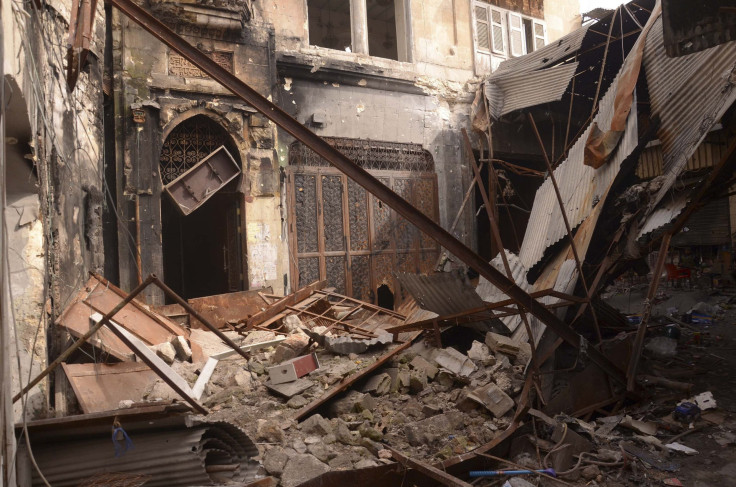US Poised To Boost Aid To Syrian Rebels

The United States plans to provide medical supplies and food – at least -- to Syrian rebel fighters in a policy shift, Reuters reported Wednesday night, citing “sources familiar with the matter.”
The sources, who spoke on condition of anonymity, said the United States continues to oppose lethal assistance and said it also will not provide such military aid as bulletproof vests, armored-personnel vehicles and training for now.
The Washington Post, however, reported that the aid might include body armor and armored vehicles. And The New York Times reported that under a broad definition of “nonlethal,” vehicles, communications equipment and night vision gear could be forthcoming.
One source told Reuters the United States was also expected to announce a large increase in assistance to the Syrian National Coalition, the main civilian opposition group.
The announcements could come as early as Thursday in Rome, where Secretary of State John Kerry will meet allies at a "Friends of Syria” meeting.
"We are examining and developing ways to accelerate the transition the Syrian people seek and deserve," Kerry said in Paris Wednesday during a news conference with French Foreign Minister Laurent Fabius, NBC reported.
The steps would reflect a U.S. move to boost aid for the opposition in the conflict, in which an estimated 70,000 people have died since protests against President Bashar al-Assad erupted nearly two years ago, while stopping far short of a full-blown military intervention, for which the administration seems to have no appetite.
But the measures might not satisfy some members of the Syrian National Coalition, which last week said it would boycott the conference out of frustration at not receiving more assistance and only agreed to come on Monday.
A coalition source said the planned U.S. steps were a continuation of what he described as an American policy of wanting "no winners, no losers."
"There is a major current in the coalition that wanted to send a message that enough is enough and that the coalition will not go along with whatever the United States has in mind and say 'thank you,'" the source told Reuters.
In Washington, proponents of American intervention, like Sen. John McCain, R-Ariz., say nonlethal aid is a step in the right direction but more is needed to help the rebels.
“It is a small measure, and I do not think at this stage of the game that it will positively affect the situation on the ground," said McCain, according to the Voice of America. "We need a safe zone. We need to supply them with lethal weapons, and we need to support them. And we are not doing that.”
The White House has long resisted providing weaponry to the rebel forces, arguing there was no way to guarantee the arms might not fall into the hands of Islamic extremists who might eventually use them against Western targets.
To blunt the power of extremist groups like the Al Nusra Front, the United States wants to help the Syrian Opposition Council, the coalition of Syrian resistance leaders it backs and helped organize, deliver basic services in areas that have been wrested from the control of the Assad government, the Times reports.
U.S. officials have said that the U.S. Defense and State Departments, under former secretary of defense Leon Panetta and former secretary of state Hillary Clinton, privately recommended that the White House arm the rebels but were overruled.
"It's a huge debate inside the administration between those that have to deal with Syria on an everyday basis, the State Department and DoD particularly, and the White House, which ... until now has vetoed any kind of outreach to the armed groups," Andrew Tabler, senior fellow at the Washington Institute for Near East Policy, a D.C. think-tank, told Reuters.
"Until now we've drawn a very clear policy line away from armed groups and preferred to deal with civilians.”
© Copyright IBTimes 2024. All rights reserved.





















